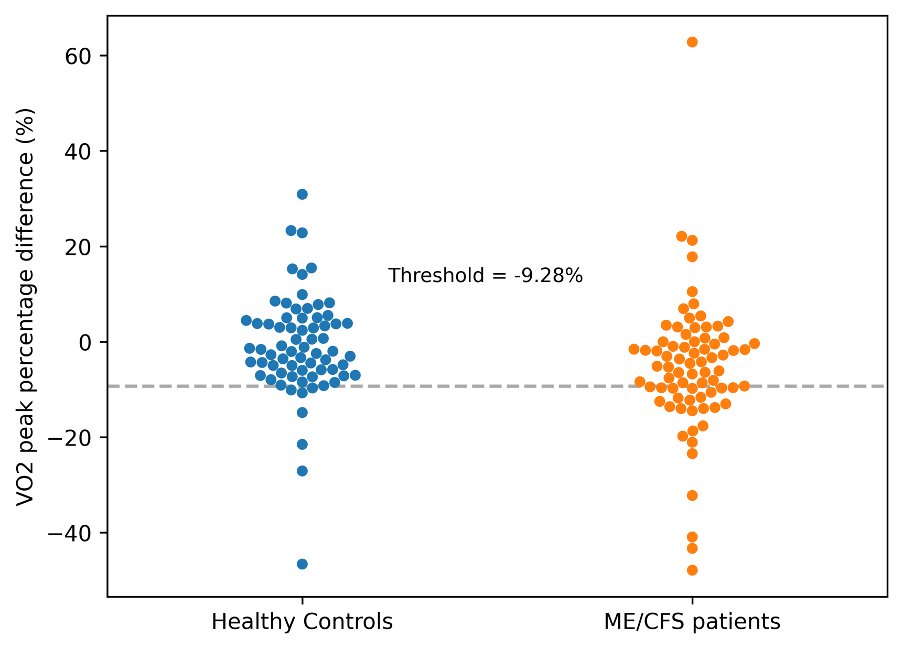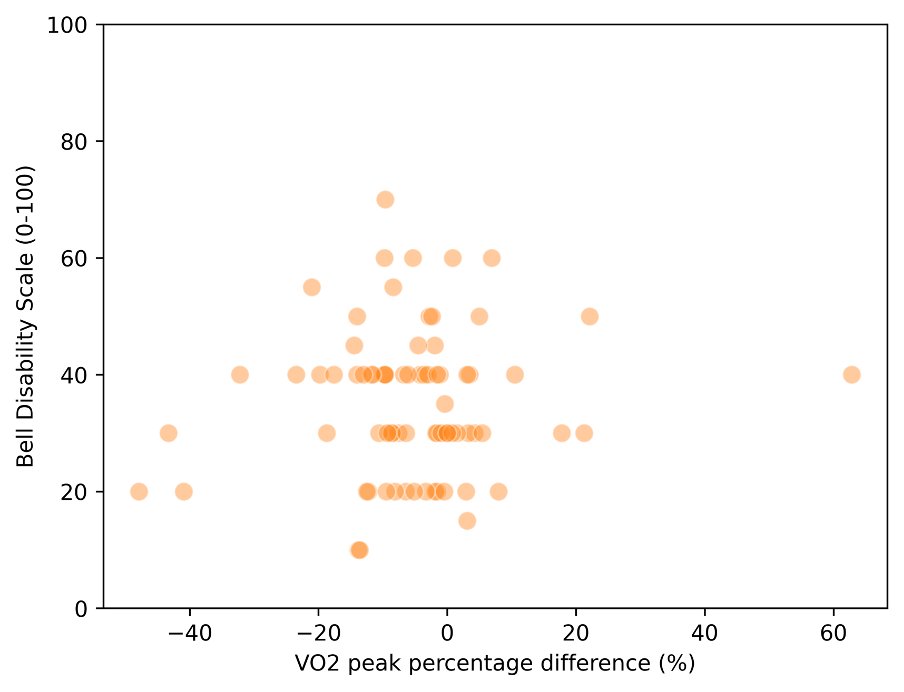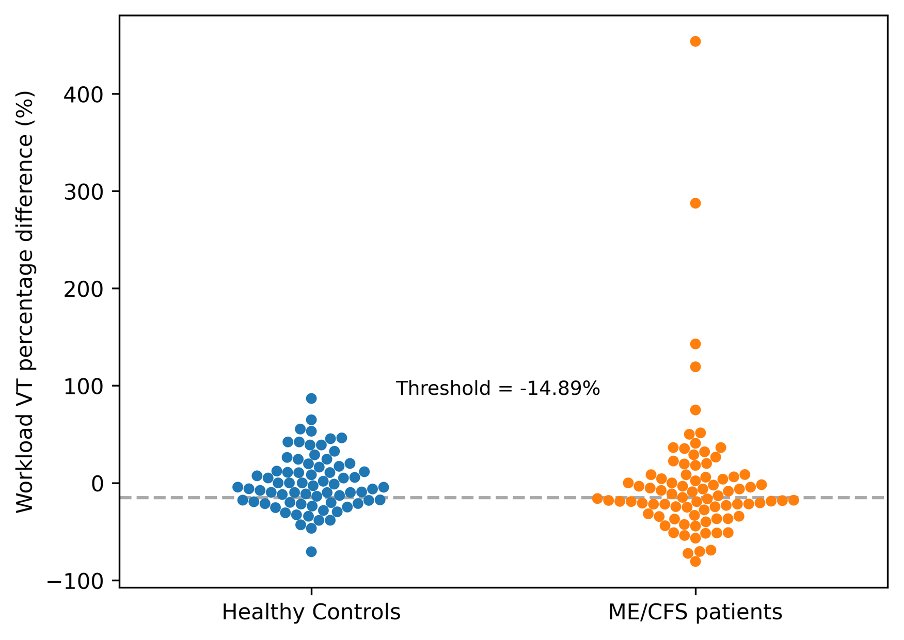Twitter summary:
1) New blog post about the largest 2-day exercise study to date. Big thanks to the authors, Dr. Betsy Keller and colleagues, for uploading the data to
http://mapmecfs.org so that others can analyse and explore it.
2) Here are the results for peak oxygen consumption (VO2) which showed the clearest effect.
On average if you randomly chose a participant from each group and compared their percentage change from test 1 to test 2, the ME/CFS value will be lower 64% of the time
3) The threshold that best separates the group is -9.3% (the dashed gray line) Approximately a third of ME/CFS patients and 10% of controls are under this line.
4) There is a clear difference but the large overlap suggests this outcome has difficulty in differentiating ME/CFS patients and controls. It does not have strong potential as a diagnostic biomarker.
5) In addition, percentage decreases from test 1 to test 2, show almost no correlation with the Bell Disability Scale.
6) This finding is also not in line with previous studies which only found a weak and nonsignificant effect for VO2 peak. The most consistent finding thus far was workload (how many wats you push) at the ventilatory threshold (VT).
7) In the Keller study, the data on Workload VT was complicated by 4 outliers. Depending on how you analyze the data, there might be a small to moderate effect.
8) This study tested more than 20 outcomes at 2 time points (Peak and VT) so we have to correct for multiple testing. Although the data suggests a small-moderate effect, it does not provide strong enough evidence to exclude that it happened by chance and random variation.
9) Overall, the results are mixed. While ME/CFS patients decline on most outcomes compared to controls, the effects seem smaller than initially assumed and there is a large overlap between patients and controls.
10 ) Many thanks to forestglip on the Science for ME forum whose thoughtful analysis was very helpful in understanding the Keller et al. dataset. You can read their comments and analysis here:
https://www.s4me.info/threads/cardi...d-oxygen-consumption-keller-et-al-2024.39219/
11) The following dataset was used from
http://mapmecfs.org: Keller et al. Cardiopulmonary and metabolic responses during a 2-day CPET in ME/CFS. Last updated: September 12, 2024, 4:29 PM (UTC+02:00).



